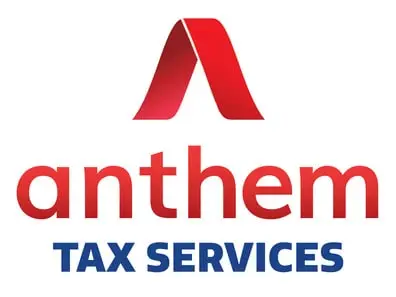
Although tax season tends to be stressful for everybody, it may be more so for individuals who are unable to pay the IRS any amount owed. At face value, this may feel like a nightmare; however, there are various avenues in which an unpayable tax debt may be resolved. Fortunately, not every option is expensive or impossible. Any given repayment option mostly depends upon the amount of time needed to send the IRS their payment in full.
Before You Get Started
It’s important to understand that you are not going to go unnoticed, once you are indebted to the IRS – hiding is pointless. The IRS is far more flexible with those who are open and honest about financial issues paying their taxes. Whether you are able to pay, or not, go forward with submitting your return by July 15th of this year regardless. It’s important to note that the IRS charges two types of fees: one for failing to file a return, and another for failure to pay.
Improving your budget is another step toward righting the wrongs that led to being unable to pay the IRS owed taxes. Constructing a budget allows you to cut unnecessary spending, while building good habits for the future – allowing you to repay what’s owed. Take note of true necessities, such as groceries and bills (electric, water, etc.), when creating a budget for smart spending.
Through the reevaluation of your withholdings, you can evaluate assess the amount subtracted from your gross annual pay. If your withholding is out of balance, you will receive more money each pay period, and be left with a higher tax bill come tax season. However, fewer allowances means your paycheck is lower, but you are at a lower risk of surprises when you file – perhaps you’ll even receive a refund.
Always be hyper aware of scams – especially businesses that promise quick fixes to any, and all tax problems (regardless of severity). Personally commit to thorough research if or when you consider the services of businesses advertising something that sounds too good to be true.
Wait for a Bill if You Need More Time
If your inability to pay is due to a temporary interruption in cash flow, you should still file a tax return on time and wait until a bill shows up in the mail. Typically the IRS notifies individuals a few weeks after the tax due date, when they owe taxes, interest and applicable late fees – which generally takes a matter of weeks. If the balance is not paid before the set deadline, a 0.5% monthly fee will begin to accrue toward any unpaid balance, up to a max of 25% – not a bad price to pay for more time.
Additionally, if you can prove the reason for late payments, penalty relief may be available where reasonable cause can be confirmed. While purposefully putting off bill payment is not the best practice, it typically takes the IRS 10 days to complete the paperwork for extension and payment plan requests. This method would not provide more than two weeks of extra time, and you don’t want to end up on the IRS’s bad side – use with caution. Again, always ensure the filing of your tax return by the deadline, regardless of your financial situation. Otherwise, you’ll begin to accrue monthly fees, as well as late-filing penalties, which all begin to look bad when trying to prove reasonable cause for relief, or when filing an extension.
Apply for an Extension for 31-120 Additional Days
A payment extension of up to 120 days, offered by the IRS, provides a little relief – which also accrues monthly penalties. While you don’t need an installment agreement in place for a payment extension, you will be fined a monthly penalty of 0.5% of the owed balance, up to a max of 25%. Individuals who qualify may also qualify for the IRS Fresh Start initiative, in order to have late fees and accrued interest waived.
Additional Options for Those Who Need More Time
There are a few options available for individuals who need more than four months to pay their taxes, with some being more extreme in nature than others. It’s important to weigh the pros against the cons, according to your financial situation – make sure to do your research before committing to any specific agreement. Installment agreement plans are plentiful with the IRS, and you can apply for various payment plans. If you already filed your tax return, depending on the amount owed, you may apply for up to 72 monthly payments online, or through the mail. Use:
- Form 9465 if the amount owed is less than $50,000
- Form 433-F if the balance exceeds $50,000.
- Form 13844 if your income is less than, or equal to 250% of the applicable poverty guideline (for a fee reduction of $43).
While an installment agreement application is being considered, or in the works, the IRS does not typically attempt to collect. In the case of application rejection, the IRS usually doesn’t collect for 30 days after the fact.
- Consider utilizing a credit card, if you have an available balance large enough, in order to pay your tax bill off in full. While this only changes the debt owed to your card issuer from the IRS, it may relieve a bit of pressure not owing the IRS any longer.
- Submitting an Offer in Compromise may allow you to repay less than owed. In the situation where paying in full causes undue financial hardship, you may negotiate an Offer in Compromise. Unless you meet the Low Income Certification guidelines set forth by the IRS, you will be required to pay the $186 application fee, alongside a sizable payment up-front.
- Tapping into your 401(k) is probably one of the less desirable ways of repaying owed taxes to the IRS, but there are two options in using retirement savings for tax payments. You can borrow from it, and avoid the 10% early-withdrawal penalty for those who are under 59 ½ years of age. The limit available for borrowing is dependent upon the amount you have invested into retirement. However, it’s important to note, this comes with a requirement of repayment within five years, including additional interest. As long as the interest rate is decent, this may be a viable option for some individuals.
- A home equity line of credit, or HELOC, may be a helpful option for some people when paying off obligations to the IRS. This may be a risky route, especially in terms of failure to pay in the situation where it costs you your home. This situation is also dependent upon terms in regard to whether it’s a feasible option.
- Selling off assets is a rather straightforward option in raising money to pay off any debt, and should be used as a last resort. This has potential to be a more painful choice because you’d have to divest yourself of certain assets in order to please the IRS.
If paying your tax debt prevents you from affording necessities, including housing, food, etc., ask the IRS to consider waiting to collect – until your finances improve. While we do not recommend contacting them directly, you can call the IRS at 1-800-829-1040. Why should you avoid speaking to them about a delay in collection? A delay in payment, regardless of how temporary it is, permits the IRS to file tax liens and ultimately lead to significant credit score damage.
The option you choose should be dependent upon the length of time needed to come up with the money to pay off the IRS. Ultimately, it is important to remember that attempting to hide from the IRS, alongside inability to pay, are choices that carry harsh penalties – when compared to payment plans, etc. You would be better off buying some time with the variously mentioned routes, and avoid damage to your bank account, and credit score.
Getting the Help You Deserve
It’s never a good idea to approach complex financial decisions without sound advice from people who really understand the choices you’re weighing. That’s why tax professionals are there, to give you the resources to reach the best possible understanding with the IRS. If you need tax debt relief help from the last tax year or for any preceding years, contact Anthem Tax Services today by email or phone ((855) 749-2859) to find out how you can settle all your outstanding tax debt.

